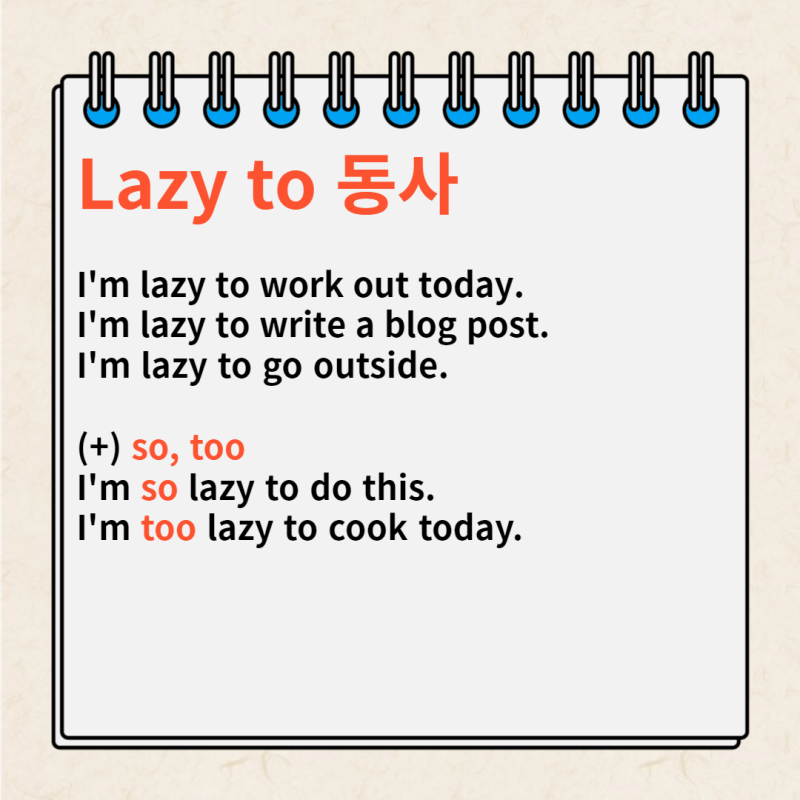너무 귀찮아 영어로
사용자가 검색한 키워드: 너무 귀찮아 영어로 귀찮아 영어로 원어민, 번거로운 영어로, 만사가 귀찮다 영어로, 귀찮게 하다 영어로, 귀차니즘 영어로, 귀찮은 사람 영어로, 성가시다 영어로, 귀찮다 meaning
Categories: Top 38 너무 귀찮아 영어로
[올리버쌤 영어꿀팁] ‘귀찮아’ 영어로 이렇게 말해요
여기에서 자세히 보기: muadacsan3mien.com
귀찮아 영어로 원어민
한국 사람들에게 영어 대화는 항상 귀찮은 일이었을 겁니다. 영어를 모국어로 하는 원어민과 만날 때, 어색하게 느껴지고 자신의 언어 능력에 대한 부족함을 느낀다는 것은 너무나도 일반적인 일이며 많은 사람들이 겪는 어려움입니다. 하지만 걱정하지 마세요! 이 문제를 극복하기 위한 몇 가지 팁과 지침이 있습니다. 이 글에서는 귀찮아 영어로 원어민에 대한 모든 것을 다룰 것입니다.
외국인과의 대화에서의 어려움은 대부분 자신감 부족과 어렴풋한 능력 감각으로 인해 발생합니다. 영어 대화 시 발음, 억양, 그리고 올바른 문법 사용에 대한 우려가 우상하게 느껴져 자신을 표현하기 어려워지기 마련입니다. 따라서 언어 교환 파트너를 찾거나 외국어 학원에 다니는 것은 도움이 될 수 있습니다. 교황 번역 앱과 같은 도구를 사용하면 쉽게 원어민과 소통할 수 있습니다. 이러한 애플리케이션은 실시간 번역 기능을 갖추고 있어 자신의 말을 간편하게 번역해줍니다.
하지만, 교환 파트너나 어플리케이션을 통해서 얻을 수 있는 유일한 해결책은 아닙니다. 여러분 스스로 영어 실력을 향상시킬 수 있는 방법들도 있습니다. 가장 중요한 것은 말하기 연습입니다. ‘영어 카페’와 같은 영어 대화를 위한 장소를 방문하거나 온라인에서 참여할 수 있는 영어 회화 그룹을 찾아보세요. 이러한 모임에서 함께 공부하고 대화를 나누는 것은 실제 상황에서 영어를 적극적으로 사용할 수 있는 좋은 기회입니다.
또한, 영어 영화, 드라마, 유튜브 영상을 시청하는 것도 효과적인 방법입니다. 한글 자막이 함께 제공되는 영상을 선택하여 보면 영어 듣기 능력을 향상시킬 수 있습니다. 영어 음악을 듣고 가사를 따라 부르거나, 점점 복잡한 영문 소설을 읽어보는 것도 도움이 됩니다. 이러한 방식들은 자연스럽게 어휘력을 향상시키고 올바른 문장 구조와 문법을 습득하는 데에 도움을 줍니다.
FAQs
Q: 귀찮아 영어로 원어민에게 영어 대화 파트너를 찾는 것이 어려운데, 어떻게 해결할 수 있을까요?
A: 영어로 대화할 수 있는 사람들을 찾는 것은 쉽지 않을 수 있습니다. 그러나 인터넷을 통해 교환 파트너를 모집하는 웹사이트나 앱이 많이 있습니다. 영어 회화 그룹을 찾거나 온라인 영어 카페에 가입하면 여러 사람들과 쉽게 대화를 할 수 있습니다.
Q: 귀찮아 영어로 원어민과의 대화에서 실수를 하면 어떻게 대처해야 할까요?
A: 실수는 자연스러운 일입니다. 언어 교환 파트너나 원어민에게서 자신의 실수를 고치도록 요청하는 것은 좋은 방법입니다. 또한, 자신의 실수를 부정하지 않고 지속적으로 영어로 대화하는 것이 중요합니다. 실수를 두려워하지 말고 자신감을 가지고 대화를 이어나가세요.
Q: 쉽게 원어민과 대화할 수 있는 어플 혹은 웹사이트를 추천해주세요.
A: HelloTalk, Tandem, HiNative와 같은 어플리케이션은 귀찮아 영어로 원어민을 찾고 대화할 수 있는 훌륭한 도구입니다. 온라인에서 대화하기에 적합한 웹사이트로는 Language Exchange, ConversationExchange, InterPals 등이 있습니다.
Q: 귀찮아 영어로 원어민과 대화할 때 실수하지 않으려면 어떻게 해야 할까요?
A: 대화 중에 실수를 줄이기 위해 말하기 전에 문장을 머릿속으로 구상해보는 것이 도움됩니다. 또한, 매일 한 문장씩 영어로 만들어 보는 습관을 가져보세요. 이를 통해 영어로의 생각 과정을 자연스럽게 만들 수 있을 것입니다.
위에서 제시한 팁과 지침들은 귀찮아 영어로 원어민과의 대화에서의 어려움을 극복하는 데에 도움이 될 것입니다. 중요한 것은 자신을 믿고 계속해서 영어로 대화를 시도하는 것입니다. 꾸준한 연습과 노력을 통해 자신의 영어 실력을 향상시킬 수 있을 것입니다. 영어는 누구나 익숙해질 수 있는 언어입니다. 할 수 있다고 믿으세요!
번거로운 영어로
Introduction
번거로운 영어로 (beon-geo-ro-un yeong-eo-ro) is a Korean phrase that translates to “troublesome English” in English. It refers to the challenges and difficulties that Korean speakers face when learning and using the English language. English is considered a global language, and proficiency in it has become increasingly important in various aspects of life, such as education, career opportunities, and international communication. However, due to the linguistic differences between Korean and English, many Koreans find themselves grappling with 번거로운 영어로. In this article, we will explore the specific areas where these challenges arise, delve into the underlying reasons, and provide strategies to overcome 번거로운 영어로.
1. Pronunciation Challenges
One of the significant hurdles for Korean speakers is mastering the pronunciation of English words. Korean and English have different phonetic systems, resulting in difficulties in accurately producing sounds that do not exist in Korean. For instance, the English “r” and “th” sounds often pose challenges. The Korean language lacks a distinction between the “r” and “l” sounds as well as the “th” sound. Consequently, Korean speakers may have difficulties pronouncing words like “restaurant” and “think.”
Strategies to overcome pronunciation challenges include:
– Active Listening: Regularly listening to native English speakers, whether through podcasts, audio books, or movies, can help develop an ear for correct pronunciation.
– Mimicry and Repetition: Practice imitating native English speakers, focusing on their intonation, stress, and pronunciation. Repeat challenging words or phrases until they are mastered.
– Speech Therapy: Enlisting the help of a speech therapist who specializes in second language acquisition can be beneficial in fine-tuning pronunciation.
2. Grammar and Sentence Structure
Another area where Korean speakers struggle is in understanding and using English grammar and sentence structure. Korean and English have different grammatical systems, including word order, verb tenses, and articles. For example, Korean does not have articles like “a” and “the,” which can lead to misuse or omission by Korean learners of English.
Strategies to overcome grammatical challenges include:
– Formal English Education: Enrolling in English language courses or working with a tutor who can provide targeted instruction on grammar rules and sentence structure.
– Immersion: Surrounding oneself with English-speaking environments, such as watching English movies, reading English books, and participating in conversations with native speakers, can help internalize grammar rules.
– Error Analysis: Keeping track of common grammar mistakes and actively working on correcting them. Websites, textbooks, and language learning apps can be valuable resources for identifying and addressing these errors.
3. Vocabulary Expansion
Expanding one’s vocabulary is a common challenge for language learners, including Korean speakers learning English. Korean and English have different word origins, so many English words do not have direct Korean equivalents. Additionally, English has an extensive vocabulary that is constantly evolving due to its usage in various fields like technology and business.
Strategies to expand vocabulary include:
– Regular Reading: Engaging in reading materials, such as books, newspapers, and online articles, can expose Korean learners to new words and reinforce their understanding of vocabulary in context.
– Contextual Learning: Learning new words within the context in which they are used can enhance comprehension and retention. Using flashcards or language learning apps that provide example sentences can be helpful.
– Word Association: Associating new English words with Korean words that have a similar meaning when possible can aid in memory retention.
FAQs
Q1. Is it normal to find 번거로운 영어로 challenging?
A1. Yes, it is completely normal to find English challenging, especially for Korean speakers. English is a complex language with distinct pronunciation, grammar rules, and vocabulary. It requires time and patience to overcome these challenges.
Q2. How long does it take to become proficient in English?
A2. The time required to become proficient in English varies for each individual. Factors such as prior language learning experience, dedication to practice, exposure to the language, and personal motivation all play a role. It is essential to set realistic goals and maintain consistency in learning efforts.
Q3. Are there any shortcuts to learning English?
A3. There are no shortcuts to learning a language. Developing language skills requires consistent practice, dedication, and exposure to the language. However, utilizing effective language learning strategies, such as those mentioned in this article, can optimize the learning process.
Conclusion
번거로운 영어로 is a common struggle faced by Korean speakers when learning and using English. Understanding the specific challenges that arise in pronunciation, grammar, and vocabulary is crucial for overcoming these difficulties. By implementing strategies such as active listening, mimicking native speakers, seeking formal education, and utilizing language learning resources, Korean learners can conquer 번거로운 영어로 and achieve proficiency in English. Remember, perseverance and consistency are key when it comes to language learning.
주제와 관련된 이미지 너무 귀찮아 영어로
![[올리버쌤 영어꿀팁] '귀찮아' 영어로 이렇게 말해요 [올리버쌤 영어꿀팁] '귀찮아' 영어로 이렇게 말해요](https://muadacsan3mien.com/wp-content/uploads/2023/06/hqdefault-762.jpg)
너무 귀찮아 영어로 주제와 관련된 이미지 43개를 찾았습니다.








![지나쌤] 지나쌤]](https://i.ytimg.com/vi/soBc3FRC30I/maxresdefault.jpg)



![영어표현] 아오 귀찮아! 😤 영어로? #shorts - YouTube 영어표현] 아오 귀찮아! 😤 영어로? #Shorts - Youtube](https://i.ytimg.com/vi/IVZHOYykpuU/maxres2.jpg?sqp=-oaymwEoCIAKENAF8quKqQMcGADwAQH4Ac4FgAKACooCDAgAEAEYZSBZKFcwDw==&rs=AOn4CLC6ds_UH_UYgCBlrOM_iOqC9EovOQ)



![영어표현] 아오 귀찮아! 😤 영어로? #shorts - YouTube 영어표현] 아오 귀찮아! 😤 영어로? #Shorts - Youtube](https://i.ytimg.com/vi/IVZHOYykpuU/maxresdefault.jpg)




Article link: 너무 귀찮아 영어로.
주제에 대해 자세히 알아보기 너무 귀찮아 영어로.
- 귀찮아 영어로 표현하는 3가지 방법
- “귀찮아”는 영어로? – 매일매일 영어공부 – 티스토리
- 귀찮다 영어로 이야기하는 여덟가지 방법 알아보자
- ‘귀찮다’ 영어로 뭘까? I can’t be bothered / I’m lazy to
더보기: muadacsan3mien.com/tin-tuc